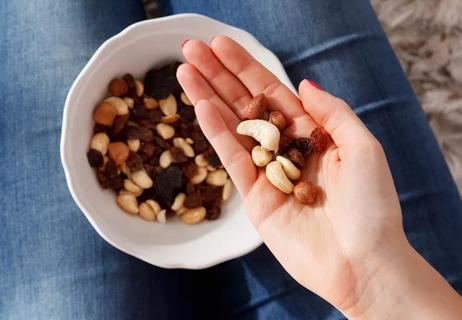Should You Use Coconut Oil on Your Skin?
Yes, you can use coconut oil on your body, but not necessarily all over

Maybe you’ve stirred it into your coffee or used it for baking. Chances are, coconut oil is an ingredient you keep in your kitchen cupboard. But could this oil that’s derived from tropical palm trees have a place in your skin care fridge as well?
Cleveland Clinic is a non-profit academic medical center. Advertising on our site helps support our mission. We do not endorse non-Cleveland Clinic products or services. Policy
As far as natural alternatives for skin care go, coconut oil has been a recommended choice for a while now. It’s natural, has a soft texture and smells like a dream — but is it actually worth the hype? In short: Yes, coconut oil can be beneficial for your skin. But that doesn’t mean you should lather it all over.
Dermatologist Jane Wu, MD, breaks down what you should know about coconut oil before including it in your everyday skin care routine.
What is coconut oil?
Before we get into the dos and don’ts of this natural oil, we should go over some light chemistry of what coconut oil actually is. Coconut oil is a plant-based oil that’s extracted from raw coconuts. It’s highly saturated, and if you’ve used it for cooking, you may have noticed that it goes from a solid white substance at room temperature to a clear liquid when heated up.
Benefits of coconut oil for skin
If you’re looking for a natural body butter, look no further. The main reason many people reach for coconut oil is because of its moisturizing power.
But what makes coconut oil so alluring? About 65% of coconut oil’s composition is medium-chain fatty acids, and they’re partially the reason why coconut oil is beneficial to your skin. Based on what dermatologists and research studies have found, certain medium-chain fatty acids like lauric acid and linoleic acid are the heavy hitters in coconut oil.
This means they can help with things like:
Soothing dry skin
Dr. Wu points out that coconut oil can help decrease transepidermal water loss (TWL), which is when water passively evaporates from your skin (too much of this leads to dry skin). TWL can be triggered by conditions like eczema, rosacea or dermatitis.
Linoleic acid is an unsaturated omega-6 fatty acid that’s also commonly found in products like canola oil or vegetable oils. According to Dr. Wu, it acts as an emollient (meaning it soothes your skin). So, if you’re prone to dryer skin, coconut oil may become your new best friend. By repairing your skin’s barrier, it can help lessen the amount of moisture your skin loses.
Treating mild wounds
Coconut oil may even be worth including in your medicine cabinet. Lauric acid, found in many vegetable oils, makes up 49% of coconut oil and has antimicrobial properties. So, while it can’t treat intense wounds on the surface of your skin, it could help with soothing milder skin lesions like scratches or razor burns.
Should you use coconut oil on your face?
Coconut oil works as a moisturizer for your body, especially if you have dry skin. But that may not be the case for your face.
Dr. Wu notes that it’s generally not recommended to use coconut oil on your face because it’s highly comedogenic (in other words, it’s a pore clogger). So, while it can help with hydration, it won’t do much to prevent acne — in fact, it may even cause it.
Side effects of using coconut oil on your skin
It’s hydrating, yes. But that means it can do its job a little too well and clog pores and cause acne breakouts — especially if your skin is more on the oily side. “If you are prone to acne, you should also avoid putting it on your shoulders, chest or back,” Dr. Wu adds.
Not only that, but it can also increase blackheads and whiteheads, which are the dreaded warning signs of inflammatory acne.
In some cases, there’s also a risk of coconut oil causing milia, a condition caused by clogged pores that leads to tiny white or yellow bumps on your skin’s surface. This is more likely to happen on parts of your body where your skin is thinner, like under your eyes. So, it’s best not to overdo it in those areas or just avoid them entirely. If you’re not sure what your skin type is, talk to a dermatologist.
How to use coconut oil
Here are some ways you can incorporate coconut oil into different parts of your skin care routine:
Body moisturizer
This is the primary way to get the most out of coconut oil.After showering or bathing, apply coconut oil to your body to help hydrate your skin (keeping in mind the cautions noted above). Rub the oil from your neck down and focus on areas that get drier like elbows, knees, hands and feet. You can also keep a bit of coconut oil with you during the day and apply as needed.
Makeup remover
While you should still be wary of applying coconut oil to your face, Dr. Wu says you can use a bit of coconut oil as a makeup remover. Use a cotton ball or pad to apply some of the coconut oil and ta-da! — you have your first layer of makeup off. Just make sure to rinse thoroughly after with a gentle cleanser or makeup remover to get everything off. “I would recommend double cleansing with a water-based cleanser afterward to reduce the risk of clogged pores and milia,” she adds.
Lip balm
Are your lips constantly dry and irritated? Coconut oil can also be a natural “chapstick” — the hydrating properties can do wonders to keep your lips moisturized throughout the day. Plus, it’s technically edible, so no worries if you end up licking your lips! But remember, with coconut oil, less is more.
What type of coconut oil is best?
One of the best things about coconut oil is that it’s natural. To get the most out of it, you’ll want to use pure, unrefined, cold-pressed coconut oil. This is because cold-pressed coconut oil doesn’t use heat in the preparation process and maintains more of its nutrients.
But even though it’s natural, coconut oil isn’t for everyone. But it could be worth trying if you’re looking to add a hydration boost to your skin without any added ingredients or chemicals. To start, apply a little to your body while avoiding your face or areas that are sensitive to acne. Take it slow and monitor your skin and how it reacts to it. Over time, coconut oil may become your new go-to!
Learn more about our editorial process.
Related Articles
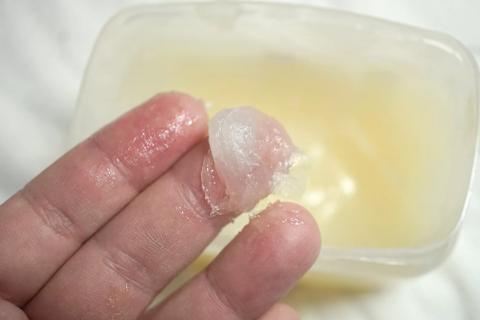
Slugging: Does This Skin Care Trend Work?
Go ahead and get goopy to help boost hydration and repair damaged skin

Psoriasis and Diet: How Foods Can Impact Inflammation
A well-balanced diet with anti-inflammatory foods can help reduce flare-ups and severity of psoriasis symptoms

These Common Triggers Likely Cause Your Psoriasis Flare-Ups
Stress, infections, skin injuries and environmental factors can trigger an onset of psoriasis symptoms

10 Easy Steps To Prevent and Manage Your Psoriasis Flare-Ups
Stick to your treatment plan, but keep your provider updated on any new symptoms or triggers
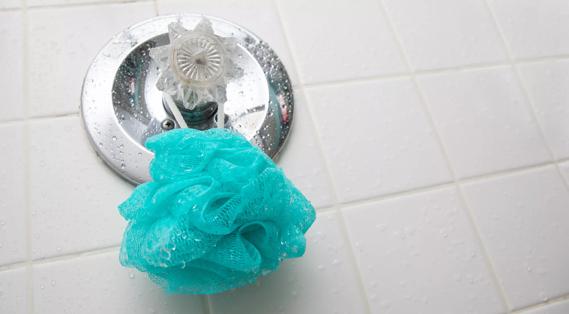
Is Your Loofah Full of Bacteria?
This puffy shower accessory can become lodged with skin cells (and other gross things), so make sure you dry it daily and clean it once a week
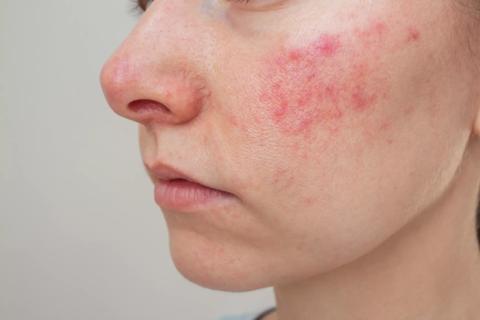
6 Natural Ways To Find Relief From Rosacea
You can turn down the redness and soothe the irritation with natural remedies like green tea, raw honey and aloe vera

What Are the Long-Term Effects of Botox?
With repeat injections over time, you may be able to slow the development of new wrinkles
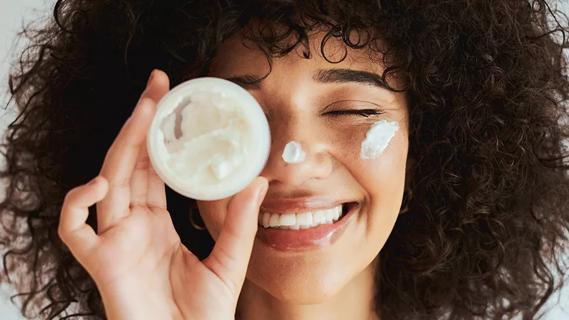
What Does Vitamin B5 Do for Your Hair and Skin?
Pantothenol is a powerful moisturizer and can help repair damaged skin and hair
Trending Topics

Here’s How Many Calories You Naturally Burn in a Day
Your metabolism may torch 1,300 to 2,000 calories daily with no activity

5 Sinus Massage Techniques To Relieve Pressure and Promote Drainage
A gentle touch in all the right places may help drain your sinuses
